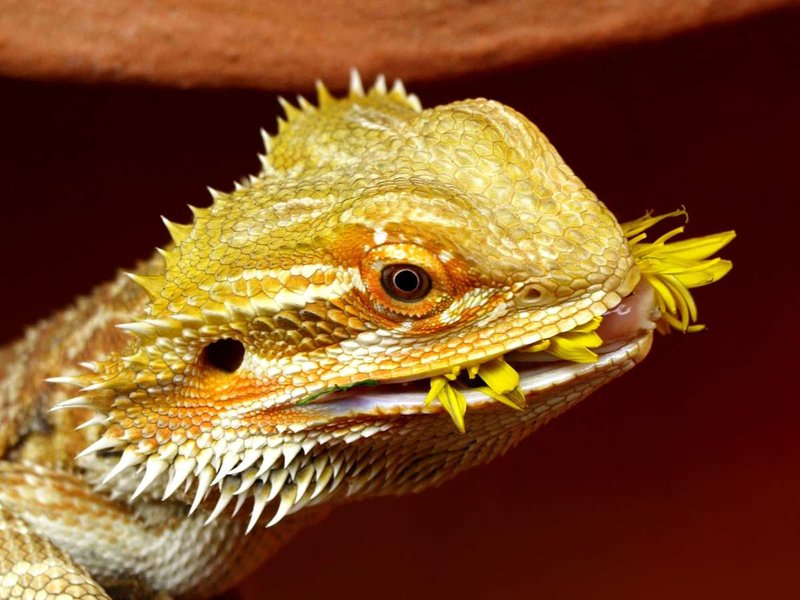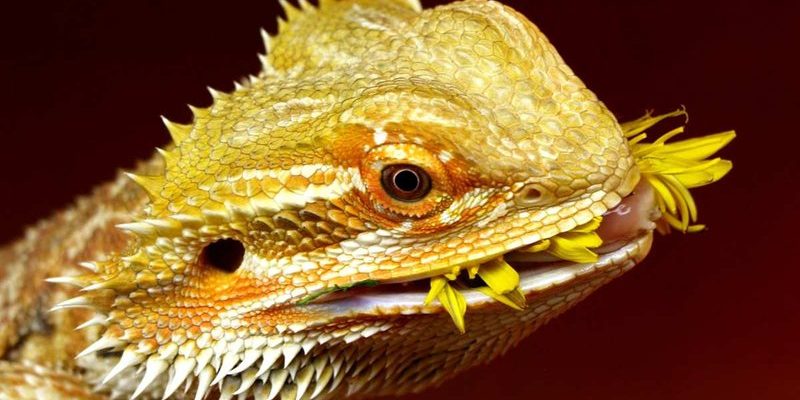
Feeding your bearded dragon isn’t just about tossing in some crickets and calling it a day. Understanding their diet and hunting behaviors can help you create a healthier, more enriching environment for your scaly companion. So, let’s dive into the world of bearded dragons—what they eat, how they hunt, and why it all matters for their well-being.
What Do Bearded Dragons Eat?
Bearded dragons are omnivores, which means they eat both plants and animals. Think of them as the versatile eaters of the reptile world! Their diet can include a variety of foods, and it’s essential to provide a balanced menu.
Here’s a snapshot of what’s on their plate:
- Insects: Crickets, mealworms, and roaches are popular choices.
- Vegetables: Leafy greens like collard greens, kale, and bell peppers are great options.
- Fruits: Occasionally, you can treat them with fruits like strawberries and mangoes—but in moderation!
Bearded dragons often thrive on a diet that consists of about 70% insects and 30% vegetables when they’re young. As they grow, this ratio changes to more veggies and fewer insects. Honestly, paying attention to these portions is vital for their health.
How Do Bearded Dragons Hunt?
Bearded dragons don’t exactly set up a sophisticated hunting strategy like a lion stalking its prey. Instead, they rely on their keen eyesight and quick reflexes. They often sit still and wait for an opportunity to snatch up their food.
Here’s how the hunting process typically works:
1. Spotting Prey: Bearded dragons have excellent vision. They can see in color and have a wide field of view, which helps them spot insects moving nearby.
2. The Chase: When they see something delicious, they’ll dart forward, using their speed to catch it quickly. Their tongue is surprisingly long and sticky, making it easier for them to catch their prey.
3. Swallowing: Once they’ve caught their meal, they’ll use their strong jaws to crush and swallow it whole. Their digestive system is pretty impressive, ensuring they get all the nutrients from the food.
Let me explain this a bit more—imagine you’re at a buffet. You spot the best dish from afar, you grab your plate, and you go for it. That’s pretty much what your bearded dragon does every time it spots some moving dinner!
The Importance of a Balanced Diet
Providing a balanced diet for your bearded dragon isn’t just about satisfaction; it’s crucial for their health. An unbalanced diet can lead to serious health problems, such as metabolic bone disease or obesity.
Here are a few tips to ensure your bearded dragon stays happy and healthy:
– Variety is Key: Just like we enjoy different foods, bearded dragons benefit from a colorful range of options. Mix up their meals with various insects and veggies.
– Supplement Wisely: Dust your insects with calcium or vitamin powder before feeding them to your dragon. This extra boost helps support bone health and overall vitality.
– Watch for Picky Eaters: Some bearded dragons can be a bit picky. If yours refuses certain foods, don’t be disheartened! Keep trying different options until you find what they love.
A well-rounded diet not only keeps your bearded dragon healthy but also allows them to show off their lively personality!
How to Feed Your Bearded Dragon
Feeding your bearded dragon can be a fun bonding experience. Here’s how you can make mealtime enjoyable and effective:
1. Set a Schedule: Consistency helps. Feed them young dragons daily, while adults can be fed every other day. This schedule keeps their metabolism on track.
2. Prepare the Food Properly: Chop vegetables into small, bite-sized pieces to make it easier for your dragon to nibble on. You want them to enjoy their meals without choking.
3. Observation is Key: Keep an eye on how much they eat. If they’re leaving food behind, it may be a sign that they’re not hungry or don’t like what you’re offering. Adjust as needed.
You might be wondering about the best insects to feed them. Crickets and mealworms are always a hit, and you can even buy them at most pet stores. Just ensure you gut-load them (feed them nutritious food) before offering them to your dragon!
Hunting Behavior in the Wild vs. Captivity
In the wild, bearded dragons will hunt and forage throughout the day. They rely on their instincts to catch meals and avoid predators. However, when kept as pets, their hunting instincts and behaviors can shift.
Here are some differences to consider:
– In the Wild: They actively hunt for insects and explore their environment, which helps keep them physically fit.
– In Captivity: Most bearded dragons have food provided for them, which can reduce their natural hunting behaviors. This is why it’s vital to engage them in other ways—like providing climbing structures or hiding spots to mimic their natural habitat.
To encourage natural behaviors, you might try using feeding tongs or scattering food around their enclosure. This way, they can practice their hunting skills in a controlled environment.
Common Pitfalls in Feeding Bearded Dragons
While caring for your bearded dragon can be a rewarding experience, it’s easy to make mistakes with their diet. Here are some common pitfalls to watch out for:
– Overfeeding: Just like us, bearded dragons can overindulge. Feeding them too many insects can lead to obesity. Stick to the recommended serving sizes.
– Neglecting Vegetables: Some owners skip the greens, thinking that insects are all their dragons need. This can lead to nutritional deficiencies. Always include leafy greens in their diet!
– Ignoring Water: Hydration is vital. Ensure fresh water is always available. Sometimes, bearded dragons will drink from shallow dishes, while others may prefer to drink droplets off leaves.
If you keep these tips in mind, you’ll be well on your way to giving your bearded dragon the best diet possible.
Creating a Feeding Routine
Establishing a feeding routine can help you and your bearded dragon. Here’s a simple guide to get started:
1. Morning Feeding: Begin with greens. Offer a small salad to get their metabolism going. They’ll usually eat more when they’re active.
2. Evening Treats: This is a great time to give them insects. They tend to be more alert and hungry during the evening.
3. Monitor and Adjust: Observe how much they eat at each meal and adjust accordingly. If they consistently leave food, consider changing the types or amounts offered.
By setting a routine, you can create a more structured environment for your bearded dragon, making mealtime less stressful and more enjoyable.
In conclusion, understanding what bearded dragons eat and how they hunt can transform your pet care game. By offering a balanced diet, monitoring their eating habits, and encouraging natural behaviors, you’ll be helping your scaly friend live a healthy and happy life. So, take the time to explore their dietary needs, and you’ll see just how wonderfully rewarding it can be to have a bearded dragon as a companion!

